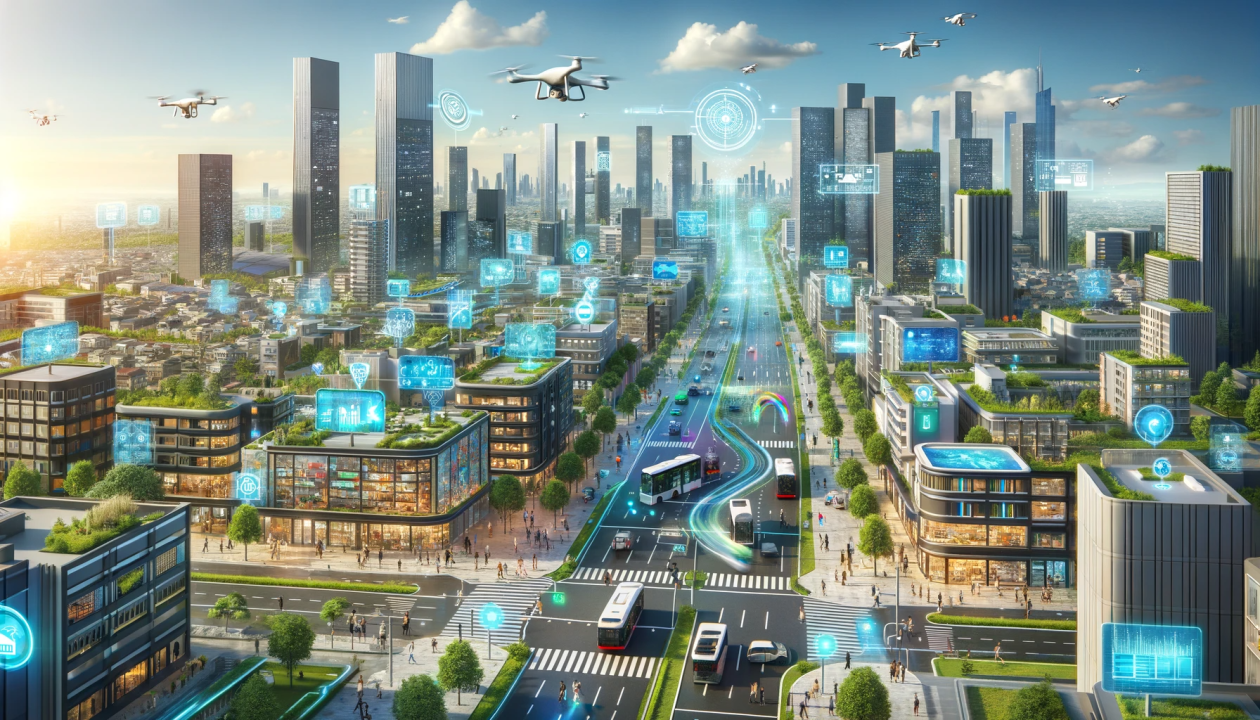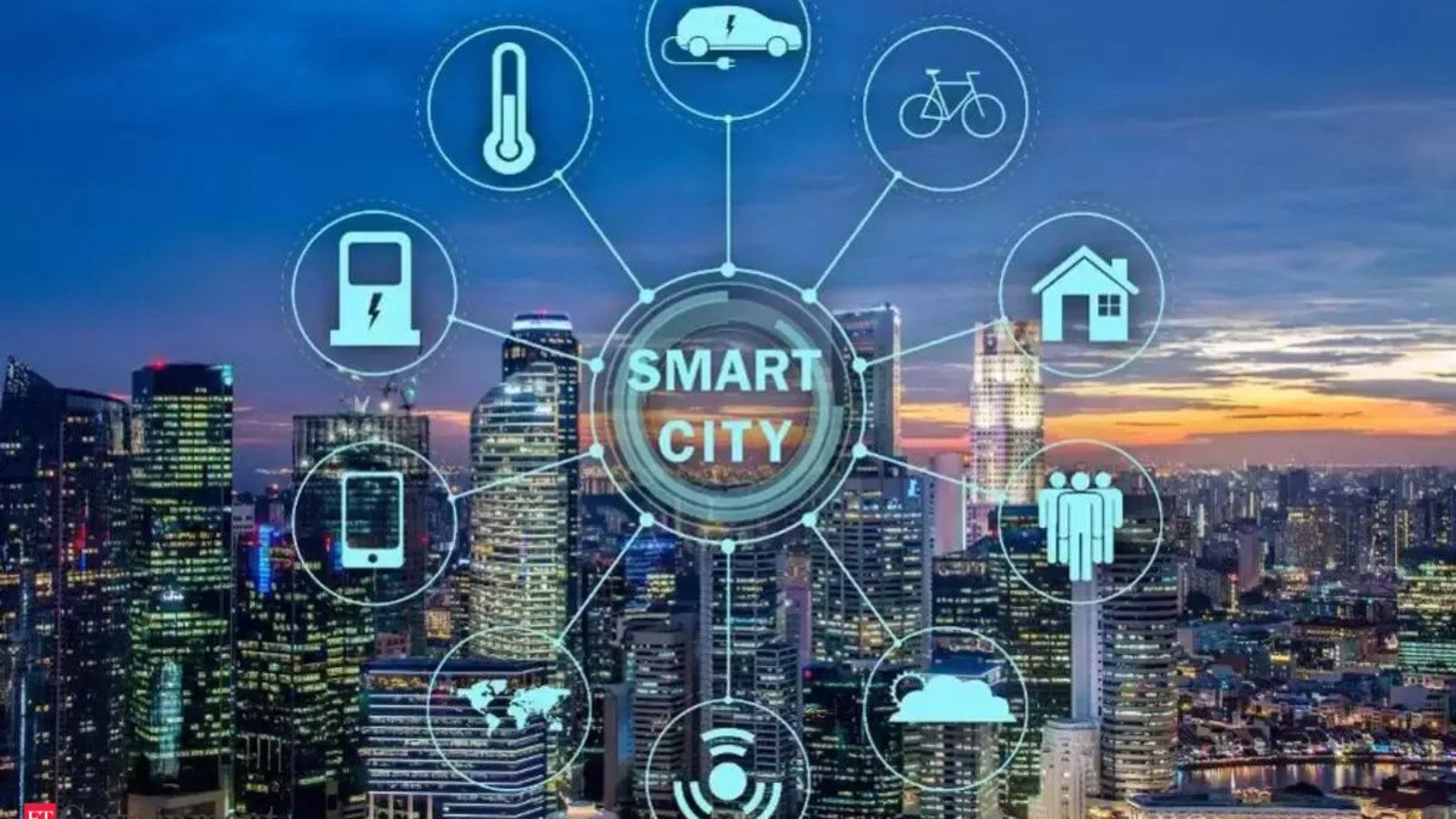Smart Cities: Smart Startups, Big Data, and Smart Decision-Making
The concept of smart cities is rapidly transforming urban environments by leveraging technology to improve infrastructure, enhance public services, and increase overall quality of life. Central to this transformation are smart startups, big data, and intelligent decision-making processes. Let’s delve into how these elements intertwine to shape the cities of the future.

The Rise of Smart Cities
A smart city utilises information and communication technology (ICT) to efficiently manage city assets and services. This includes everything from traffic management and waste disposal to energy distribution and public safety. The goal is to create an urban area that offers a high quality of life while being sustainable and economically viable.
The Role of Smart Startups
Startups play a crucial role in the smart city ecosystem. Agile and innovative, they are well-positioned to develop and implement new technologies that drive urban innovation. Here are a few areas where smart startups are making a significant impact:
Transportation: Startups are creating advanced solutions like ride-sharing platforms, autonomous vehicles, and real-time traffic monitoring systems to alleviate congestion and reduce pollution.
Energy Management: Companies are developing smart grids and renewable energy solutions to optimise energy use and decrease reliance on non-renewable resources.
Public Safety: Startups are enhancing urban security through advanced surveillance systems, predictive policing software, and emergency response technologies.
Waste Management: Innovations in waste collection, recycling, and processing are helping cities reduce their environmental footprint and manage resources more efficiently.
Big Data: The Backbone of Smart Cities
Big data is at the heart of smart city initiatives. It involves the collection, processing, and analysis of vast amounts of data from various sources, such as sensors, cameras, and social media. This data provides valuable insights that can inform decision-making and policy development.
Traffic Management: By analysing data from traffic cameras and GPS devices, cities can optimise traffic flow, reduce congestion, and improve public transportation systems.
Energy Consumption: Data from smart metres can help cities monitor energy use patterns and develop strategies to reduce consumption and promote sustainability.
Public Health: Health data can be used to track disease outbreaks, allocate medical resources efficiently, and improve overall public health services.
Environmental Monitoring: Data from sensors can help cities monitor air quality, water levels, and noise pollution, enabling timely interventions to protect the environment.
Smart Decision-Making
The true power of smart cities lies in their ability to make informed decisions based on data-driven insights. This involves using artificial intelligence (AI) and machine learning (ML) to analyse data and predict outcomes. Here’s how smart decision-making is transforming urban management:
Predictive Analytics: Cities can anticipate and mitigate potential issues such as traffic jams, crime spikes, and environmental hazards.
Resource Allocation: AI can optimise the allocation of resources, such as police officers, medical personnel, and maintenance crews, ensuring they are deployed where they are most needed.
Policy Development: Data-driven insights can inform the creation of policies that promote sustainability, economic growth, and social well-being.
Citizen Engagement: Smart cities can use data to engage with citizens, gather feedback, and involve them in decision-making processes, leading to more transparent and responsive governance.
How can smart startups contribute to the development of smart cities?
Innovative Solutions for Urban Challenges
Smart startups bring fresh perspectives and innovative solutions to address various urban challenges. Their ability to think outside the box allows them to develop cutting-edge technologies and services that improve city living.
Transportation: Startups are creating advanced transportation solutions like ride-sharing platforms, autonomous vehicles, and real-time traffic monitoring systems to alleviate congestion and reduce pollution.
Energy Management: Companies are developing smart grids, renewable energy solutions, and energy-efficient technologies to optimise energy use and reduce reliance on non-renewable resources.
Public Safety: Startups are enhancing urban security with advanced surveillance systems, predictive policing software, and emergency response technologies.
Waste Management: Innovations in waste collection, recycling, and processing are helping cities manage resources more efficiently and reduce their environmental footprint.
Data Collection and Analysis
Startups specialising in data analytics and IoT (Internet of Things) technologies contribute significantly to the smart city ecosystem by collecting and analysing vast amounts of data from various sources.
Real-Time Monitoring: IoT devices and sensors deployed by startups provide real-time data on traffic, air quality, energy consumption, and other critical aspects of urban life.
Predictive Analytics: By analysing data patterns, startups can help cities predict and mitigate issues such as traffic jams, crime spikes, and environmental hazards.
Enhancing Public Services
Smart startups improve public services by developing user-friendly applications and platforms that make it easier for citizens to access city services.
Smart Healthcare: Telemedicine platforms, health monitoring apps, and AI-driven diagnostic tools developed by startups enhance healthcare delivery in urban areas.
Education: Edtech startups create e-learning platforms, virtual classrooms, and personalised learning solutions to improve educational outcomes.
Promoting Sustainability
Startups contribute to the sustainability goals of smart cities by developing eco-friendly technologies and promoting green practices.
Renewable Energy: Startups in the renewable energy sector develop solar, wind, and other sustainable energy solutions that help cities reduce their carbon footprint.
Green Buildings: Companies create energy-efficient building materials and smart home technologies that promote sustainable living.
Citizen Engagement and Participation
Smart startups facilitate greater citizen engagement by developing platforms that encourage public participation in urban planning and decision-making.
Mobile Apps: Apps that allow citizens to report issues, provide feedback, and participate in surveys help cities become more responsive and inclusive.
Social Platforms: Startups create online communities where residents can discuss urban issues, share ideas, and collaborate on projects.
Collaboration with Governments and Corporations
Startups often collaborate with municipal governments, corporations, and other stakeholders to implement smart city solutions on a larger scale.
Public-Private Partnerships: These partnerships enable startups to access funding, resources, and expertise necessary for scaling their solutions.
Pilot Projects: Startups can test their technologies through pilot projects in collaboration with city authorities, allowing for real-world validation and improvement.
Agility and Flexibility
Startups, by nature, are agile and can quickly adapt to changing urban needs and technological advancements. This flexibility allows them to rapidly develop and deploy solutions in response to emerging challenges.

Add a Comment